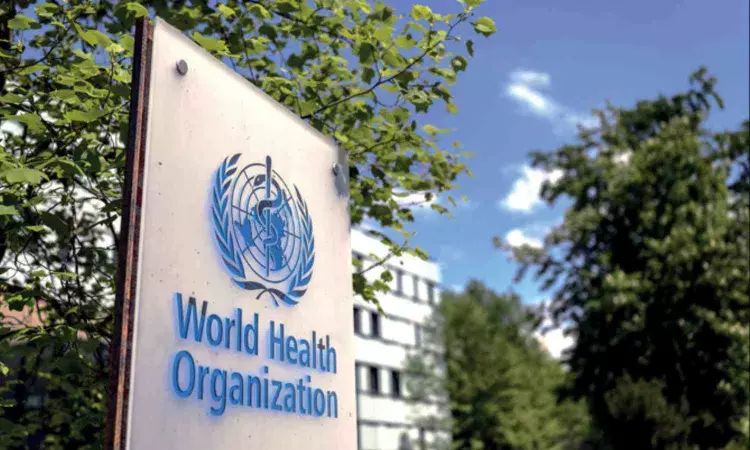- Home
- Medical news & Guidelines
- Anesthesiology
- Cardiology and CTVS
- Critical Care
- Dentistry
- Dermatology
- Diabetes and Endocrinology
- ENT
- Gastroenterology
- Medicine
- Nephrology
- Neurology
- Obstretics-Gynaecology
- Oncology
- Ophthalmology
- Orthopaedics
- Pediatrics-Neonatology
- Psychiatry
- Pulmonology
- Radiology
- Surgery
- Urology
- Laboratory Medicine
- Diet
- Nursing
- Paramedical
- Physiotherapy
- Health news
- Fact Check
- Bone Health Fact Check
- Brain Health Fact Check
- Cancer Related Fact Check
- Child Care Fact Check
- Dental and oral health fact check
- Diabetes and metabolic health fact check
- Diet and Nutrition Fact Check
- Eye and ENT Care Fact Check
- Fitness fact check
- Gut health fact check
- Heart health fact check
- Kidney health fact check
- Medical education fact check
- Men's health fact check
- Respiratory fact check
- Skin and hair care fact check
- Vaccine and Immunization fact check
- Women's health fact check
- AYUSH
- State News
- Andaman and Nicobar Islands
- Andhra Pradesh
- Arunachal Pradesh
- Assam
- Bihar
- Chandigarh
- Chattisgarh
- Dadra and Nagar Haveli
- Daman and Diu
- Delhi
- Goa
- Gujarat
- Haryana
- Himachal Pradesh
- Jammu & Kashmir
- Jharkhand
- Karnataka
- Kerala
- Ladakh
- Lakshadweep
- Madhya Pradesh
- Maharashtra
- Manipur
- Meghalaya
- Mizoram
- Nagaland
- Odisha
- Puducherry
- Punjab
- Rajasthan
- Sikkim
- Tamil Nadu
- Telangana
- Tripura
- Uttar Pradesh
- Uttrakhand
- West Bengal
- Medical Education
- Industry
WHO Unveils New Global Framework to Combat Drug Resistance in HIV, Hepatitis B/C, and STIs

The World Health Organization (WHO) has released the Integrated drug resistance action framework for HIV, hepatitis B and C and sexually transmitted infections, 2026–2030, a landmark roadmap to address the growing threat of drug resistance and safeguard progress toward ending AIDS and the epidemics of hepatitis B, hepatitis C and sexually transmitted infections (STIs) as public health concerns.
Drug resistance is a major challenge to prevention and treatment efforts. Without urgent, coordinated action, it could lead to increased new infections and treatment failures and higher preventable morbidity and mortality, and undermine global elimination goals. The new framework proposes a unified approach to prevent the emergence and spread of resistance and reduce its impact through integrated, people-centred strategies.
The Framework outlines 5 strategic areas of work: prevention and response; monitoring and surveillance; research and innovation; laboratory capacity; and governance and enabling mechanisms. It emphasizes antimicrobial stewardship, stronger surveillance systems, and equitable access to high-quality prevention, diagnosis and treatment services for HIV, hepatitis B and C and STIs.
“Drug resistance threatens decades of progress in HIV, hepatitis and STI control. This framework is a call to action for countries, communities and partners to unite around a shared agenda,” said Dr Tereza Kasaeva, Director of WHO’s Department for HIV, Tuberculosis, Hepatitis and Sexually Transmitted Infections. “Together, we can preserve the effectiveness of life-saving antimicrobial drugs and accelerate progress toward ending these epidemics.”
The Framework builds on WHO’s Global health sector strategies and aligns with the Sustainable Development Goals and the Global Action Plan on Antimicrobial Resistance. It responds to renewed political commitment following the 2024 UN High-level Meeting on Antimicrobial Resistance and provides a multisectoral roadmap for implementation.
Dr Kamal Kant Kohli-MBBS, DTCD- a chest specialist with more than 30 years of practice and a flair for writing clinical articles, Dr Kamal Kant Kohli joined Medical Dialogues as a Chief Editor of Medical News. Besides writing articles, as an editor, he proofreads and verifies all the medical content published on Medical Dialogues including those coming from journals, studies,medical conferences,guidelines etc. Email: drkohli@medicaldialogues.in. Contact no. 011-43720751


